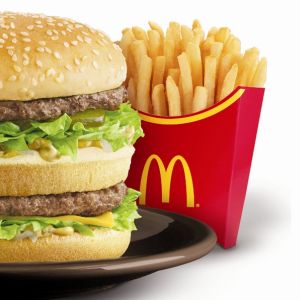
The opening of a new McDonald’s restaurant is no longer an event of any real significance beyond reinforcing the power of the franchise business model (more than 34,000 outlets in 118 countries). Unless that that restaurant is the first to open in Vietnam.
Four decades after the US retreated having lost the war to contain communism, the iconic brand that represents all that the US stands for opened for business on 8 February in the former Saigon, now Ho Chi Minh City, to a rock star welcome. Over 20,000 visits a day have been reported, far exceeding the restaurant’s 350 seat capacity.
The restaurant is strategically located on the city’s busiest intersection and, as Vietnam’s first fast-food restaurant to offer 24/7 drive through service, is well placed to attract the rapidly growing middle class who have graduated from motor scooters to cars.
The entry of McDonald’s, which for many is a tangible sign of Vietnam’s progress in international integration and embrace of western models, is a landmark event in the development of Vietnam’s franchising sector. Franchising is a relatively new concept in Vietnam. Given its complicated history it could not be otherwise.
The title of George Ritzer’s book The McDonaldization of Society encapsulates concerns with the homogenisation and standardisation of society – that “the principles of McDonald’s are coming to dominate more and more sectors of American society as well as the rest of the world.”
Franchising is nevertheless a proven strategy for SME development. It is essentially a strategy for cloning a business through the replication of proven management and business systems. It is the multiplier that paves the way for successful business endeavours. For this reason franchising is a particularly important strategy in developing countries encouraged by governments for its contribution to building a services oriented economy.
Foreign franchise systems bring not only their distinctive business concepts but also high standards of business operation and customer service, new technologies and new way of thinking about business. Franchisees’ opportunities for successful business operation are improved because of the provision of operational and business formats, technical expertise, management skills, training and ongoing support. Foreign franchise systems provide the catalyst for the development of the domestic franchise sector.
Vietnam, with a youthful population of 92 million – 85 percent under the age of 40 – outperformed other emerging markets in 2013 and is predicted to continue its economic improvement with GDP growth forecast of 5.42 percent in 2014. Favourable economic forecasts predict domestic demand will continue to strengthen in the next few years suggesting a promising future for foreign investors as well as for domestic entrepreneurs.
With unsaturated markets, a growing middle class and a young population increasingly attracted to global brands, it is not surprising that Vietnam with its rich potential was the destination chosen by McDonald’s to mark its first entrance into a new Southeast Asian market after two decades. Its entry is symbolic of the new Vietnam but it is also so much more. McDonald’s is a reluctant icon for Western values and a metaphor for Western capitalism but its contribution to any developing country is much greater than its product offering.
Franchising has a significant role in SME entrepreneur development and if McDonald’s Ho Chi Minh City outlet inspires the new generation of Vietnamese entrepreneurs its legacy will be so much greater than the Big Mac.
Andrew Terry, Professor of Business Regulation and Trang Quang, The University of Sydney Business School

